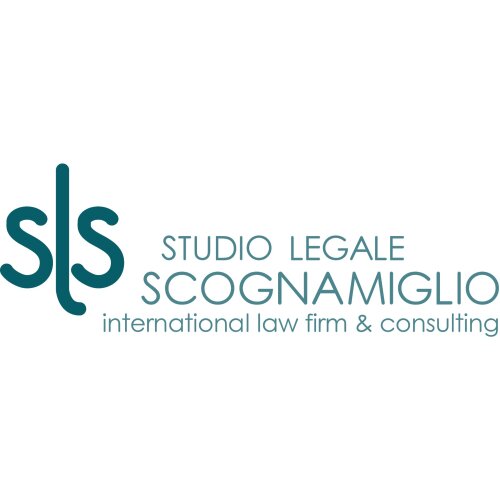Best Immigration Lawyers in Naples
Share your needs with us, get contacted by law firms.
Free. Takes 2 min.
List of the best lawyers in Naples, Italy
Italy Immigration Legal Questions answered by Lawyers
Browse our 5 legal questions about Immigration in Italy and read the lawyer answers, or ask your own questions for free.
- Visa renewal
- Hello sir I hove Italy 5 yers visa but it’s expired I apply for renewal at June still waiting not response can you help me to take soon Iam from Afghanistan
-
Lawyer answer by Avv Carlo Isnardi
Hi, I can have a look at it if you whish, sometimes the issue of the permit of stay exceed the normal time. I can only help you if you filed an application in Milan though
Read full answer - Parmisso di segirno
- Hello sir I need my renew my carta di segirno.plz help me..00393508691993. [email protected]
-
Lawyer answer by Boccadutri International Law Firm
Dear Sorya,Thank you for contacting our Law Firm. We can arrange a preliminary meeting with our Immigration legal adviser to understand better your case. The cost for our consultation will be 125.00 Euro plus CPA (a 4% Italian Law tax)...
Read full answer - Can I still renew my Stay Permit?
- I am a Master student of a 2 year program in University. But due to having part time job (within limited hours) I am planning to finish graduation within 2026. But I have found an information that, the stay permit for study perposes can only be renwed upto 3 years?... Read more →
-
Lawyer answer by MAH&CO.
Yes, it’s true that in many countries, a student residence permit for higher education is typically issued for the official duration of your academic program, with a maximum validity or renewal period (often up to three years). However, exceptions exist...
Read full answer
Italy Immigration Legal Articles
Browse our 2 legal articles about Immigration in Italy written by expert lawyers.
- Italy Digital Nomad Visa: Application Guide and 2026 Tax
- Italy's Digital Nomad Visa (launched 2024) targets highly skilled remote workers with foreign employers or clients, a clean criminal record, and annual income typically around EUR 28,000 or higher. The Digital Nomad route is outside the annual "decreto flussi" quota, while the classic Self-Employment Visa is quota-based, slower, and more... Read more →
- Italian citizenship via maternal line: Navigating 1948 Cases
- Italian citizenship by descent (jus sanguinis) is one of the most generous in the world, but cases through a female ancestor born before 1 January 1948 usually require a lawsuit in an Italian civil court, not a consulate application. The 1948 rule comes from old nationality rules that prevented Italian... Read more →
About Immigration Law in Naples, Italy:
Immigration Law in Naples falls under the larger jurisdiction of Italian national law. The regulations encompass rules regarding entry, stay, and exit of non-EU citizens. In addition, they cover issues like asylum, refugee status, family unification, and work permits. The immigration process in Naples, including applying for visas or permits, can be complex and require a thorough understanding of both local and national Italian law.
Why You May Need a Lawyer:
Immigration law in Italy can seem complex, particularly due to the language barrier if you're not fluent in Italian. These complexities could span across visa applications, work permits, and residence permits that will allow you to live and work in Italy. Legal advice may also be required for the family reunification process and in dealing with asylum or refugee status claims. A lawyer who specializes in immigration can be instrumental in guiding you through these processes to ensure that you meet all requirements and deadlines.
Local Laws Overview:
The key aspects of local laws relevant to immigration in Naples involve obtaining a residence permit (Permesso di Soggiorno), visa applications, and conversion of permits from study permits to work permits. It's also important to note that all foreign nationals residing in Italy should register their presence in the city with the local police station within 8 days of arrival. This is a legal requirement, failure to which may result in penal consequences. Laws also exist regarding seasonal and non-seasonal work for non-EU immigrants.
Frequently Asked Questions:
1. How long can I stay in Italy without a visa?
Non-EU nationals can stay in Italy for up to 90 days without a visa for tourism. If you plan to stay longer or for other purposes like work or study, you'll need to obtain an appropriate visa.
2. How can I apply for a residence permit in Naples, Italy?
You need to apply for a residence permit within eight working days from your arrival in Italy. You can submit your application at any post office by filling a special “Yellow kit”.
3. Can I work in Naples with a study visa?
Yes, you can work part-time (up to 20 hours per week) on a Study Visa in Italy, but you'll need to convert your permit from a study permit to a work permit after completion of your studies if you wish to continue working.
4. How do I bring my family for Family Reunification?
To bring your family to Italy, you’ll need to request for family reunification by proving that you have adequate income and accommodation. The income should be at least equivalent to the annual social allowance paid by the Italian social security system.
5. How long does it take to get Italian citizenship?
The time to obtain Italian citizenship varies depending on your circumstances. Generally, it takes around 4 years after legally living in Italy, but it may take longer depending on individual cases.
Additional Resources:
The Ministry of Interior's Immigration Portal and the local police (Questura) office are key resources for those seeking information about immigration in Naples. For more comprehensive help, professional organizations like the Italian Council for Refugees (CIR) can provide assistance, as well as numerous NGOs operating in the Naples region like Centro Astalli and Caritas.
Next Steps:
If you need legal assistance in immigration, you should consider hiring a local lawyer that specializes in Immigration Law. They can help you navigate the intricacies of local and national immigration laws in Italy and assist in filing applications and necessary paperwork. In addition, understanding the local immigration laws, visiting the resources mentioned, and taking help from specialized organizations can guide you through the process.
Lawzana helps you find the best lawyers and law firms in Naples through a curated and pre-screened list of qualified legal professionals. Our platform offers rankings and detailed profiles of attorneys and law firms, allowing you to compare based on practice areas, including Immigration, experience, and client feedback.
Each profile includes a description of the firm's areas of practice, client reviews, team members and partners, year of establishment, spoken languages, office locations, contact information, social media presence, and any published articles or resources. Most firms on our platform speak English and are experienced in both local and international legal matters.
Get a quote from top-rated law firms in Naples, Italy — quickly, securely, and without unnecessary hassle.
Disclaimer:
The information provided on this page is for general informational purposes only and does not constitute legal advice. While we strive to ensure the accuracy and relevance of the content, legal information may change over time, and interpretations of the law can vary. You should always consult with a qualified legal professional for advice specific to your situation.
We disclaim all liability for actions taken or not taken based on the content of this page. If you believe any information is incorrect or outdated, please contact us, and we will review and update it where appropriate.
Browse immigration law firms by service in Naples, Italy
Naples, Italy Attorneys in related practice areas.









